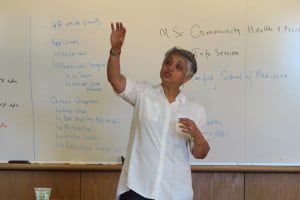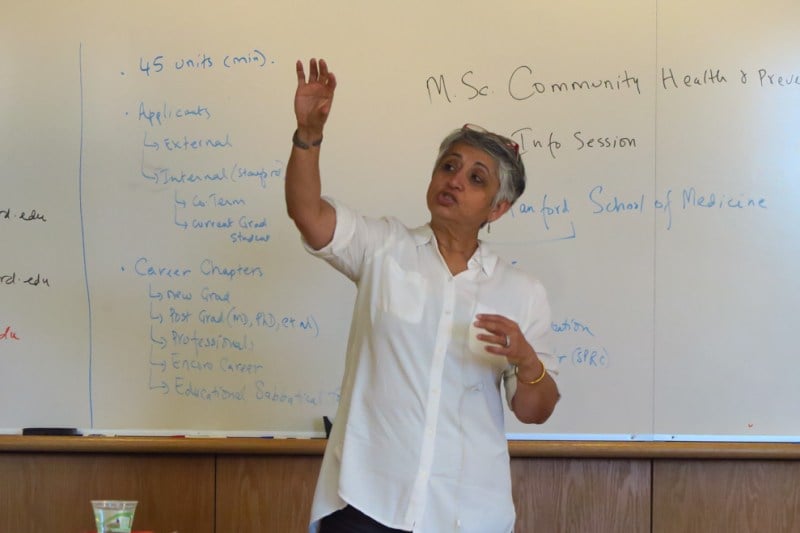
Stanford’s new Master of Science in Community Health and Prevention Research (CHPR) will prepare students to prevent health crises by analyzing and addressing societal and infrastructural shortcomings.
After initially opening to coterminal applicants last spring, the degree is now open to all coterminal and other graduate school applicants for the 2016-2017 school year. Students already pursuing M.D. or M.B.A. degrees at Stanford will have the opportunity to pursue a dual degree with the new masters program.
“We want students with passion and drive to tackle community health and health equity,” said Dr. Judith Prochaska, Ph.D, M.P.H, the faculty director of the degree program.
Core coursework for the degree includes classes in three main areas: research methods, biostatistics and evidence-based recommendations for prevention. Students must also participate in a two-quarter long community internship and write a master’s thesis to complete the degree.
A key component of the program is the community-based internship, in which students will be paired with a faculty member to conduct research.
Although the students in the current cohort have not yet begun their research projects, previous students at the Stanford Prevention Research Center (SPRC), which administers the degree program, have studied everything from trends in health care utilization to patient-physician interactions on “HealthTap,” a social network for patients and their doctors.
The new program emphasizes technical skill and human connection alike, and the breadth of challenges that the degree addresses makes it accessible to students from across disciplines.
“In terms of backgrounds, we want, and have always seen, great diversity,” Prochaska said.
Students currently enrolled in the program have majored in human biology, computer science and sociology.
Students passionate about community health have many resources at Stanford — the SPRC also sponsors Stanford Health 4 America Fellows Program, a nine-month certificate program for college graduates. In addition, many of the SPRC-affiliated faculty also teach undergraduate courses in the human biology major.
The growing emphasis on community health at Stanford mirrors ongoing national dialogue about healthcare in the US, according to Sonoo Thadaney, who is director of Education Programs at SPRC.
“Health means prevention and not just treatment,” Thadney said.
The degree prepares students to solve healthcare issues at the community level — before therapy and clinical research become necessary. Thadaney believes that this approach is well suited to the current climate of national healthcare.
“The burden of health care in our country is higher than [in] many and the outcomes aren’t the best,” said Thadaney. “We know that there’s an interest in it and that there’s a national imperative around it.”
Students will find much to explore in the field of community health. Thadaney emphasizes the creative possibilities that the new degree will offer students.
“It’s our job to link up their interests and their passion with this curriculum and help them create new worlds that no one has yet imagined,” Thadney said.
Contact Augustine Chemparathy at agchempa ‘at’ stanford.edu.
